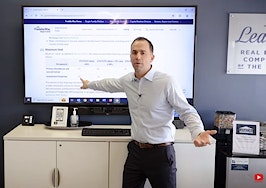Despite the plethora of information online and in print about credit scores, that all-important snapshot of how someone handles their finances, people don’t really know a lot about them. And according to one recent study, they don’t seem to care.
Ally Bank found that just 1 in 10 young adults 18 to 24 check their credit scores on a regular basis, even though they are entitled to a free report annually from each of the three major credit repositories.
And they’re not alone. More than half of the recent high school and college graduates queried by the Sandy, Utah-based banking wing of Ally Financial grade themselves with a “C” or lower when asked to rate the knowledge of personal finance. Only one in 10 give themselves an “A.”
This squares with the latest annual survey testing consumer knowledge about credit scores by the Consumer Federation of America (CFA), which found that consumers’ understanding has declined steadily over the eight years the organization has been studying the issue.

Credit Score Knowledge, from the Consumer Federation of America
“Consumers know less about credit scores, but they think they know more,” said Stephen Brobeck, a CFA senior fellow who once headed the association of more than 250 non-profit consumer groups.

Credit score understanding over time, from Consumer Federation of America
This news comes at a time when Americans are burdened with a staggering amount of debt, with numerous categories reaching all-time highs.
Credit card debt reached an all-time high of $834 billion as of the fourth quarter of 2018, according to Experian. Mortgage debt hit $9.4 trillion, personal loan debt totaled $291 billion and has been the fastest-growing type of consumer debt in the past year. Student loan debt hit a record high of $1.37 trillion, and auto loan balances also reached an all-time high of $1.27 trillion, according to the same data.
People’s understanding of scoring isn’t just poor, it’s also an indication of how unimportant many think their scores are. Key for the real estate business is that for lenders, credit scores are the Holy Grail, the chief factor used to determine whether to deny or approve a loan. But scores also impact the rates folks can obtain for auto loans, the amount they’ll pay for all kinds of insurance and the deposits required by utilities and cell phone companies.
Low scores also have an impact on finding employment, Brobeck pointed out. Folks with low scores “may also struggle to obtain a good job with which to afford those higher costs,” he said during a telephone briefing on the latest study.
Consumers who know their scores change their behavior
Yet, when people know their scores, according to a third study, they show a marked improvement in how they handle their finances.
The working paper from the National Bureau of Economic Research (NBER) tested what the study’s authors say is “a novel form of disclosure” that provides student loan borrowers with a personalized measure of their creditworthiness. In a field experiment covering more than 400,000 such borrowers, members of the treatment group “significantly” reduced their late payments and raised their scores accordingly
The CFA survey was done in conjunction with Vantage Score, an alternative scoring program developed by the three national credit reporting companies — and the chief rival to the more popular FICO score used by most mortgage companies. It found that while scores in general are rising, a large minority of consumers have only fair or poor scores and lack significant understanding about them.
For example, 38 percent don’t know they have more than one score. Most mortgage lenders ask each depository — Experian, TransUnion and Equifax — for a score and use the middle number to rate how well an applicant handles credit. (Each depository uses a somewhat different scoring system to derive their scores, but each system was created by FICO. Hence, the term FICO score.)
Another example: 34 percent have no clue that keeping low credit card balances helps keep their scores high or raise them if they are low. In 2012, only 15 percent didn’t know that.
On the flip side, the latest study found that large majorities of consumers know that mortgage lenders and credit card companies use credit scores, that missed payments count against them and making payments on time helps boost their scores or maintain a high one.
But conversely, significant minorities of folks don’t know borrowing from a 401(k) retirement account, say for a downpayment on a house, can lower their scores. Ditto for not paying a simple parking ticket on time. They also didn’t know that opening several credit card accounts at the same time, say to buy furniture for that new house or to take advantage of offers for free travel points or miles, might lower their scores.
Of course, checking the accuracy of information in your credit files is important. After all, that’s the info on which your scores are based, and some data could be incorrect. But 33 percent of the respondents to the CFA study, which is based on responses from 1,002 adults, didn’t know that.
Young adults turn to people they know for advice
The Ally Bank study also is quite revealing. For example, it found that young adults are twice as likely as older people to turn to friends and family for tips on how to handle their personal finances — rather than rely on the ever-growing reams of online articles that are available.
It’s no wonder, then, that the survey found that 60 percent of all adults now believe personal finance courses should be taught in high school. And there seems to be progress on that front: Recent graduates are three times more likely to have learned about personal finance in school than older adults, the survey found. Still, slightly more than half would like to know how to handle their finances better.
Toward that end, Ally has developed four Wallet Wise courses that can be found online. The classes cover budgeting, credit, banking and investment, and automobile financing. CFA and Vantage Score also have an online quiz people can take to update their understanding on credit scoring. But a variety of banks have their own “financial wellness” tools that they make available to the public as well.
Lew Sichelman is a seasoned writer with 50 years of covering the housing and mortgage markets under his belt. His biweekly Inman column publishes on Tuesdays.
How do you stay ahead in a changing market? Inman Connect Las Vegas — Featuring 250+ experts from across the industry sharing insight and tactics to navigate threat and seize opportunity in tomorrow’s real estate. Join over 4,000 top producers, brokers and industry leaders to network and discover what’s next, July 23-26 at the Aria Resort. Hurry! Tickets are going fast, register today!
Thinking of bringing your team? There are special onsite perks and discounts when you buy tickets together. Contact us to find out more.













